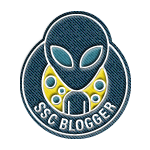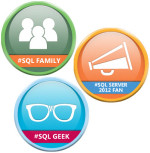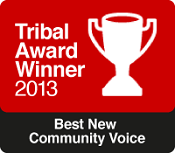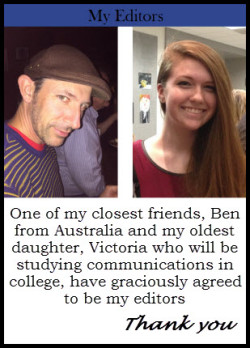There was a time not to long ago when I didn’t know how to meet others in my profession. I didn’t know about SQL Saturdays or PASS Summit. The conferences that I was starting to attend were full of people who really didn’t want to network. But I’m persistent. I was determined to find a community of professionals who wanted to network. Then I found my first SQL Saturday and I fell in love with the community that PASS helps create the world over. I now have friends on almost every major continent? (Are there any SQL professionals in Antarctica? If so, I want to meet you.)
Who you gonna meet?
As each PASS Summit approaches, I make a list. I check it twice. And I decide who I’m going to meet. My question to you is, who are you going to meet at PASS Summit (or at your next SQL Event)? How do you decide who you want to meet? If you are looking for ideas on how to make your list, and you should have a list, keep reading.
My Top Ten List of How I Pick People to Meet
1. Set up a Twitter account to get to know the #SQLFamily community
The first thing I did before my very first Summit was creating a Twitter account. The SQL community has a huge presence there and it is a great place to get to know people from all over the world. You’ll not only connect with other individuals, but you’ll also see tweets of links to great articles that people share. You’ll also have a place to ask others how they solved the problems you are now facing through the hashtag, #SQLHelp.
I had several people on my first “Meet and Greet” list whom I had met this way. One of them was Ed Watson, whom I’m still friends with.
 We chatted on twitter often. It was great meeting Anil in person.
We chatted on twitter often. It was great meeting Anil in person.
| Note: I recommend reading this before acquiring your first Twitter account. http://www.brentozar.com/twitter/book/ |
2. Consider the bloggers you follow
I checked out the list of blogs that I read and compared the authors to the list of attendees to see if any of the bloggers I knew were attending.
 Ola Hallengran is known for his maintenance scripts.
Ola Hallengran is known for his maintenance scripts.
We connected at a karaoke bar.
3. Ask the people in your local community if they are attending
They will be able to introduce you to other people during the event. I met several people at the SQL Saturday in San Diego who were also going to Summit. They were happy to introduce me to people at the various events we attended.
 I know Phil from the local user groups.
I know Phil from the local user groups.
He helped introduce me to other people.
4. Consider the speakers of the sessions you are attending
As you determine which of the sessions you want to attend, read up on the instructors. They all have small bios on the PASS Summit site. You can also check out their blogs. If they have something in common with you, or if they really helped shape your career, then add them to your list. Just don’t make your entire list out of the speakers. You need variety.
Jes Borland is an amazing speaker.
I’m so happy I’ve gotten to know her.
| Note: I would recommend introducing yourself to speakers you want to meet at various after parties, during lunch, or as you see them in the halls. They are usually super busy right before their sessions setting up and right after their sessions answering questions. |
But wait! There’s more!
Those are the easy ways to create a list before the event. But don’t stop building your list after the event starts. The list you bring with you is just the beginning. Keep reading to find out how to add to your list during the event.
5. Go to the networking parties in the evenings
At PASS Summit, there is a Networking Party put on by Andy Warren and Steve Jones. GO TO IT. Sit with people you don’t know. I know I will be. This event is not a sponsored event. In other words, you need to pay for your food and drink, BUT the networking is free and encouraged. Register for it here.
When I went to my first one, I met the lovely Viki Harp. She introduced me to Wendy Pastrick who whisked me away to meet Pam Shaw. It was actually amazing that I ate any food at all. It was so much fun meeting new people.
 Jason and I are connecting at the
Jason and I are connecting at the
Summit Networking event.
6. Sit with new people during breakfast and lunch
At my first Summit, I only knew the people I had met at my first SQL Saturday, and I was very determined not to eat a single meal by myself. So I didn’t. Every morning, I got on Twitter and asked if I could join anyone for breakfast at the Daily Grill. I used the hashtag #Summit2012 (this year it will be #Summit2015, obviously). And guess what. I never ate alone. This wonderful woman, Monica Rathburn asked me to join her almost every morning.
 This was my last breakfast at my first Summit.
This was my last breakfast at my first Summit.
We started with four people.
7. Consider people in your sessions
Introduce yourself to people sitting around you before the session starts. Or strike up a conversation about the session with someone after the session has ended.
 Ritu and I connected when we realized
Ritu and I connected when we realized
we kept attending the same sessions.
8. Hang out at the Community Zone at PASS Summit
This is a great place to meet people. Why? That is the purpose of the Community Zone. Usually there is a schedule for various groups of people to be in the community. So, if you really want to meet the Australians, then show up during the hour to hang out there. If you want to meet people from your own region, then come when they are scheduled to meet up in the Community Zone. (The best part is there are awesome bean bag chairs to sit in.)
 Tjay and I ran into each other in
Tjay and I ran into each other in
the Community Zone.
9. Attend the after parties
Attend as many after parties and other non SQL events as you can. Yes, quite a few of them have drinking, and that might be an issue for you, but not all of them do. Here are some other events that have little to no drinking that are usually found at PASS Summit:
- Running. That’s right, there is a large group of runners who get up when I’m still dreaming and go for a run. They usually have cool SQL shirts and Jes Borland is usually found leading the pack of SQL runners.
- Board game night. Last year there were a couple of nights where people gathered around board games to talk and have fun.
- PASS Prayers. This is a Christian group who meets for prayers and fellowship in one of the hotel lobbies in the morning, again when I’m still dreaming.
- Photo walk: This is a great way to learn about Seattle, get a good walk outside, and get to know other SQL Photography lovers.
 We were hanging out at an event in the evening.
We were hanging out at an event in the evening.
| Note: All the events that PASS knows about will be put on this page a few weeks before PASS Summit starts. |
10. Attend other events that occur around PASS Summit
Last but not least, attend Redgate’s SQL in the City event on the Monday before PASS Summit. This is an amazing free event put on by Redgate. They have several speakers speaking on various topics. There’s also a free lunch and networking at the end of the event. When you are done, you can head over to the Networking dinner I mentioned in No. 5 above.
 Sebastian Mein and I had a photo op with
Sebastian Mein and I had a photo op with
the lovely Carly from Redgate visiting from the UK.
Hi. My name is…
One of the things you can do when you are talking to people is give them your card. Wait…You don’t have one? That is easily fixed. Vista Print is where I make mine and they always seem to have discounts. Since the card is about YOU and not your company, just put the contact info you are interested in sharing. I put my name, title, email, and a picture of myself. My first year, I came home with 50 cards from other people. I wrote on the back where I met them. The following year I went through them and I was amazed at how many I still remembered and even interacted with through other SQL events and through social media (mostly Twitter).
Back to talking to people
So, you’ve got your list and you are standing in front of someone you wanted to meet. Now what?
If they’re not considered “famous”, then ask them if you could buy them a drink (coffee, soda, or bottled water works, too) or ask if they have time to meet in the Community Zone to chat. The Community Zone is usually full of awesome bean bag chairs to sit and talk in. Tell them you wanted to meet them to talk about xyz, and xyz doesn’t have to be about SQL. Maybe you both enjoy art, or learning about Whiskey distilleries. (Oh wait, that’s me.)
 Chris and I will be reconnecting over breakfast this year.
Chris and I will be reconnecting over breakfast this year.
If you consider them “famous”, thank them for writing/speaking/inspiring. If they have time to talk, tell them about yourself and maybe ask them a question about SQL.
What if you are shy or an introverted?
You can still make connections. You only really need to make one strong connection. It’s ok if it takes more than one Summit to develop. I have SQL Family friends that are shy/introverted. I make sure they go out to some of the events and are having a good time. I help with making introductions for them to make connections with people on their “Meet and Greet” list.
| Anecdote: My first Summit I met someone who was shy. We saw each other again our second Summit, but it wasn’t until our third Summit when we developed a stronger connection. I know it was hard for them, but they called me and asked if they could go with me to an event. They weren’t comfortable going by themselves. I was happy to go to the event together. I was also happy to introduce them to other people in the community. I’m really looking forward to spending more time with them this Summit. |
Follow the White Rabbit
In the end, it’s all about making connections. If Neo hadn’t followed the white rabbit, he wouldn’t have met Trinity who took him to Morpheus. These connections are not just for the yearly PASS Summit. They are there for as long as you nurture them. Some of the people I’ve met, I only see at Summit, some I see four or five times a year, and some I talk to every day through social media and Skype. These connections help remind me that I’m not crazy when the App Devs tell me that Foreign Keys are bad, and they help me when the poo hits the fan and I need to restore data in a way I’ve never done before. Finally, they are there for me because we are all part of this huge community, affectionately dubbed “SQL Family”.









